KAUST welcomes 2025 Ibn Rushd Postdoctoral Fellows, strengthening Saudi research talent
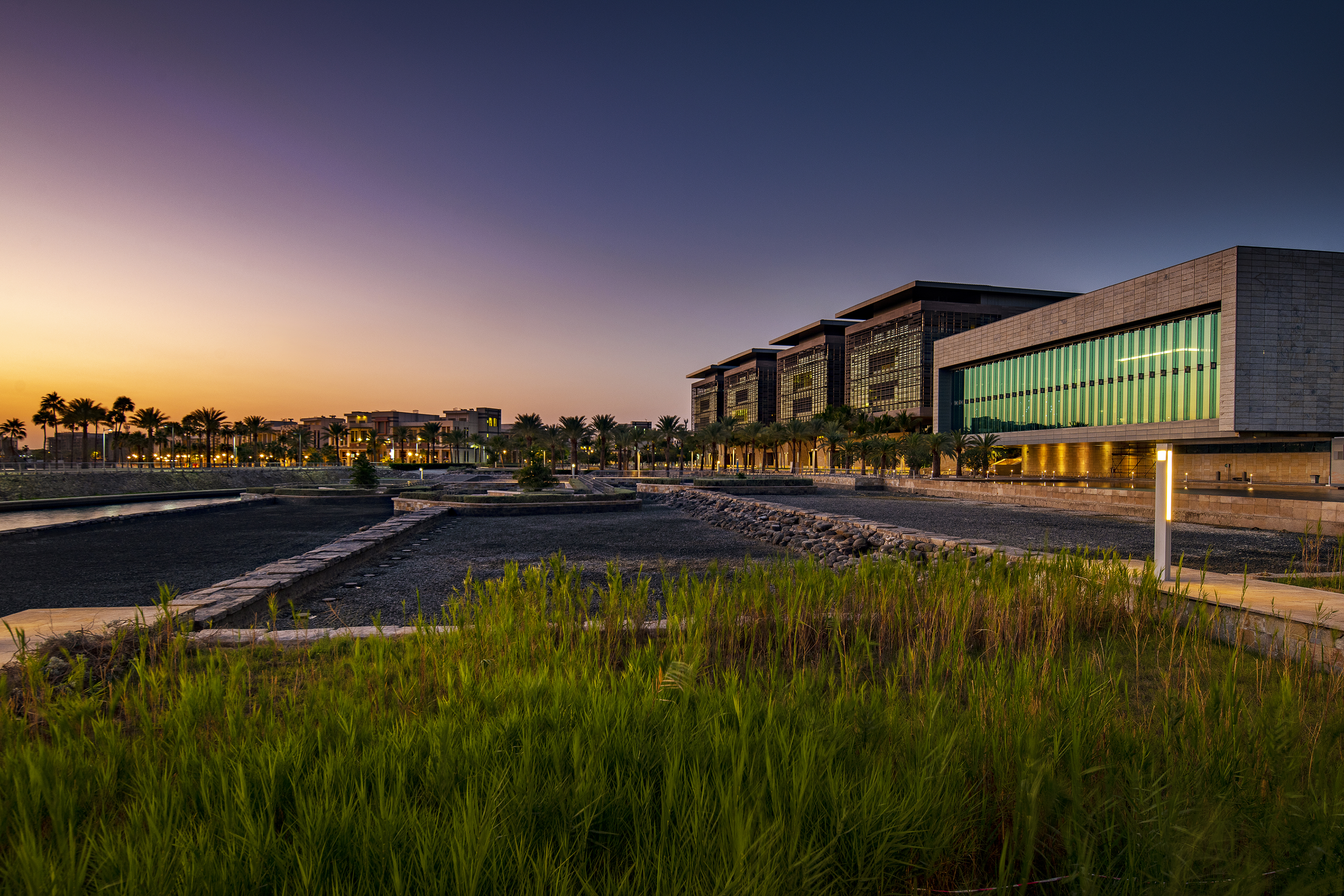
KAUST proudly welcomes the latest cohort of exceptional Saudi scholars selected for the prestigious Ibn Rushd Fellowship Program — a key KAUST initiative dedicated to strengthening the Kingdom’s academic and research ecosystem in direct alignment with the University’s Accelerating Impact strategy.
Postdoctoral fellows engage in advanced research after earning their Ph.D., using this critical stage to refine their expertise and prepare for academic careers and research leadership roles. The Ibn Rushd Fellowship sponsors the most promising early-career scientists from across Saudi Arabia to pursue up to three years of postdoctoral work at world-renowned institutions.
Named after the 12th-century polymath Averroes, the program strengthens the Kingdom’s research ecosystem while advancing KAUST’s mission of innovation and excellence in support of Vision 2030, developing the brightest minds in priority fields and raising the status of Saudi academia nationally and globally. It ensures fellows remain connected to Saudi Arabia’s dynamic research landscape.
Let us meet the latest cohort of Ibn Rushd fellows.
Abdullah Hassan Bukhamsin
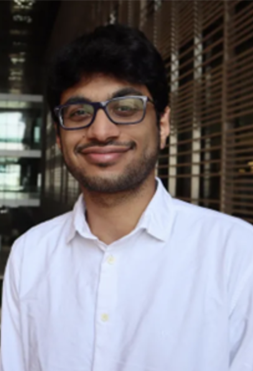
Abdullah Hassan Bukhamsin is a KAUST Ph.D. candidate in Bioengineering, working under the mentorship of Professor Khaled N. Salama. His research focuses on developing minimally invasive sensors for environmental and agricultural applications. He holds a master’s in Electrical Engineering from KAUST. As part of the KAUST Gifted Students Program (KGSP), he earned a bachelor’s in Bioengineering from Rice University.
His work includes plant-wearable sensors for precision agriculture, coral reef monitoring and a patented dipstick test for detecting diesel adulterants. Recognized with multiple awards, including the KAUST Dean’s Award and IEEE Biosensors Conference Best Paper Award, he is also a recipient of prestigious research scholarships.
Bukhamsin will carry out his Ibn Rushd Postdoctoral Fellowship at the California Institute of Technology, focusing on wearable electrochemical sensors for smart health applications and precision farming technologies, supporting smart healthcare solutions and sustainable agriculture and food security.
Akram Alwithenani
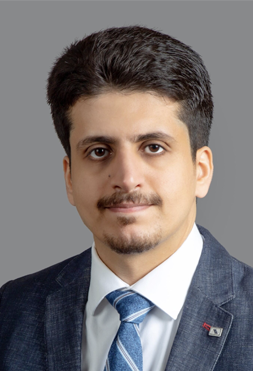
Akram Alwithenani is a postdoctoral fellow at Harvard, focusing on cancer gene and immunotherapy. He earned his Ph.D. from the University of Ottawa, specializing in high-throughput drug discovery and virus-based therapies for cancer. His research integrates genetic engineering and immunotherapy to develop innovative cancer treatments.
During his Ph.D., Alwithenani discovered several novel viral enhancer compounds that demonstrated efficacy against cancer cells and are currently being patented. Committed to advancing gene and immunotherapy-based cancer treatments, he received the Ibn Rushd Postdoctoral Fellowship, enabling him to continue his research at Harvard in alignment with Saudi Arabia’s National Biotechnology Strategy.
Mohammed Alghadeer
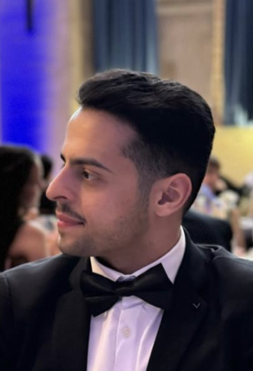
Mohammed Alghadeer, a Rhodes scholar, conducted his Ph.D. research in superconducting quantum computing and condensed matter physics at Oxford. His primary research interests focus on developing quantum devices for quantum information processing and simulations. Through Ibn Rushd, Alghadeer will continue his research at Oxford.
He completed his undergraduate studies in Physics and Electrical Engineering at King Fahd University of Petroleum and Minerals (KFUPM). At KAUST, he worked on novel surface treatments to reduce quantum device coherence losses.
Alghadeer also conducted research at the Quantum Nanoelectronics Laboratory at the University of California, Berkeley, and at Lawrence Berkeley National Laboratory, where he investigated defects in quantum processors that limit their efficiency and control. His additional research interests include computational materials and machine learning. He has presented at international conferences and received multiple awards.
Omar Alshangiti
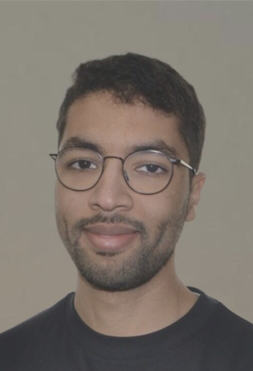
Omar Alshangiti is a Ph.D. student at Oxford, researching materials for electrochemical energy storage. He holds dual degrees in Materials Science and Engineering and Chemistry from the University of Illinois at Urbana-Champaign, where he conducted research at the Beckman Institute. His work focuses on developing scalable solutions for energy and industrial processes through electrochemistry and materials engineering.
A recipient of several prestigious awards, including the Rhodes Scholarship, the Misk Fellowship and KGSP, Alshangiti will carry out his Ibn Rushd Postdoctoral Fellowship at MIT, developing scalable electrochemical methods for energy and industrial processes. His work supports Saudi Vision 2030 by advancing clean energy solutions and optimizing industrial processes.
Sarah Al Abdullatif
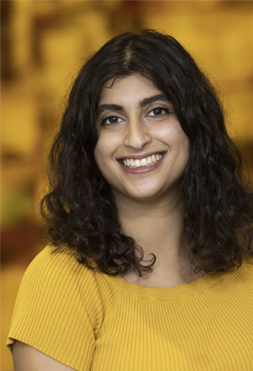
Sarah Al Abdullatif is a Ph.D. candidate at Emory University, specializing in DNA nanostructures for studying mechanical forces in biological processes such as immune cell activation. She holds a master’s from KAUST and is a KGSP alumna, through which she earned her bachelor’s from the University of California, Berkeley. Her research integrates bioengineering and nanotechnology to explore cellular mechanisms.
Al Abdullatif has presented her work at international conferences and received recognition for contributions to the field. She will conduct her postdoctoral research at MIT, utilizing DNA origami nanostructures to investigate immune cell activation and neuronal protein interactions. Her work aims to advance treatments for immune-related diseases and neurological disorders while contributing to Saudi Arabia’s vision of advancing research to address health challenges.
Shorooq Abdulrhman Alomar
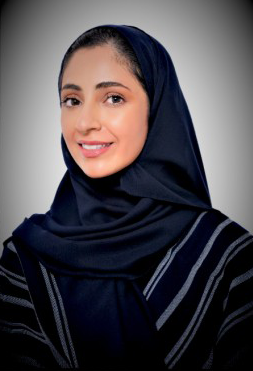
Shorooq Abdulrhman Alomar is a KAUST Ph.D. candidate in Materials Science and Engineering, supervised by Professor Omar F. Mohammed. Her research explores carrier dynamics and energy transfer systems in optoelectronic materials to improve imaging and energy conversion technologies.
Holding a master’s in Physical Chemistry from Imam Abdulrahman Bin Faisal University, where she researched solar cells and quantum dot materials, Alomar conducted practical research at KFUPM . Before pursuing her Ph.D., she earned multiple awards at SADARA Chemical Company.
Alomar has received the Ibn Rushd Postdoctoral Fellowship to continue her research at Harvard, where she will study light-matter interactions in energy conversion applications, advancing Saudi Arabia’s leadership in energy technologies for the future.
Empowering Saudi research for global impact
The Ibn Rushd Fellowship Program exemplifies KAUST’s commitment to nurturing top-tier Saudi research talent and advancing the Kingdom’s global academic standing.
By equipping these scholars with world-class expertise, KAUST and the program directly supports Vision 2030, ensuring Saudi Arabia remains at the forefront of innovation, scientific discovery and knowledge-driven progress.

